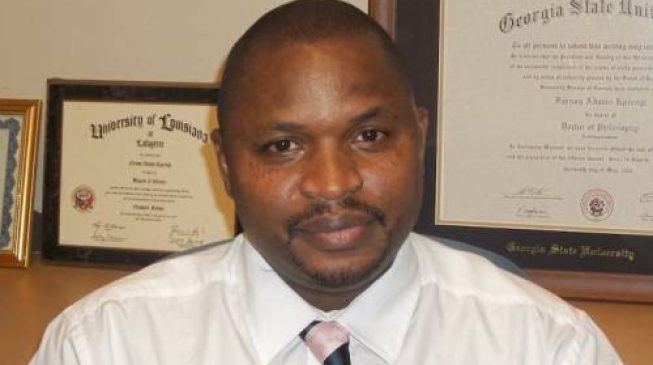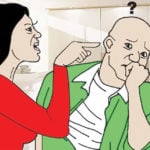WHAT does this award mean to you?
To be frank, I’m at once honoured and flattered by it. I had exactly zero expectation that the book would win an award, much less the Choice Outstanding Academic Titles award. As my friend, Professor Moses Ochonu of Vanderbilt University, said in his comment on my Facebook timeline, ‘unlike other book awards, this award is decided by library professionals, editors, and reviewers—in other words all those who know a good book when they see one regardless of topic, focus, or discipline. This one is special’. Given the quality and reputation of previous winners of this award, I feel more important than I deserve to be.
We understand you didn’t enter this for the award, so how did you get to know you won, and what was your immediate reaction?
I got to know about the award because I was tagged on Twitter by the publisher of my book to whom the award is also an honour because it signposts the quality of the books they publish and the rigour of their review process. People don’t enter for the Choice Outstanding Academic Titles awards.
They are chosen. Scholars, reviewers, librarians, and editors evaluate more than 6,000 books published the previous year and choose the best among them using criteria such as ‘overall excellence in presentation and scholarship’, ‘importance relative to other literature in the field’, ‘distinction as a first treatment of a given subject’, ‘originality or uniqueness of treatment’, etc.
My immediate reaction was incredulity. It took some time for it to sink in. I knew that I invested tremendous intellectual energy into writing the book, but I didn’t think it would stand out enough to be noticed and honoured among more than 6,000 books published in the same year. It’s genuinely humbling.
It is surprising where you get the energy to combine scholarly work with social media activism and good governance advocacy, especially on matters concerning your home country, Nigeria. You must be paying some price for that?
I, too, wonder where I get the energy from. But I think it comes from my overpoweringly lingering passion to see Nigeria live up to its potential. I owe whatever success I have achieved in life to the foundational, highly subsidised education I received in Nigeria, and feel that my social and political interventions are my own modest ways to give back to a country that gave me so much. Having travelled to different parts of the world and interacted with diverse groups of people, I know Nigeria has all it takes to be a decent, livable country that works for most of its people if it has the right leadership. It’s this sentiment that animates my activism.
Yes, I am praying a price in terms of the volume of my scholarship. Had I not been involved in public intellection and social activism, I would have written way more books and journal articles than I have written.
But I have no regrets because my interventions in the demotic public sphere have been infinitely more consequential, in my opinion, than my more arcane scholarly writings that are walled off in journals and in expensive books that most Nigerians can’t afford to buy.
It has also affected me emotionally. My impatience with our slow progress, dysfunctional systems, stunted institutions, and short-sighted, self-centered leaders at all levels of government sometimes activates disabling angst in me.
And, of course, I know my activism has attracted a lot of enemies for me in and out of government. That has made me more conscious of my personal safety and security than I should normally be.
To what or to whom would you dedicate this award and why?
I want to dedicate this award to my wife, Maureen Kperogi, for being my most important pillar of support, and to our first daughter, Sinani Kperogi, for designing the cover of the book.
This recognition should challenge you to do more. Going forward, what should the world of academics expect from you?
My third book on digital dissidence and social media censorship in Africa is in production and will be published by Routledge.
It should be out sometime next year. I am editing a book, along with three other Nigerian scholars, on free speech and freedom of the press in Nigeria. It will be published by Lexington Books in Maryland, USA.
I’m also working on a book on the rhetorical construction of collective identities in Nigeria. That should be out in the next two years if I am alive.
In addition, I am collaborating with a Nigerian scholar for a book on the epistemic and cultural utility of West African, specifically, Nigerian names.
YOU SHOULD NOT MISS THESE HEADLINES FROM NIGERIAN TRIBUNE
Lagos Is Second Least Liveable City In The World For 2021
Lagos is the second least liveable city in the world for the year 2021. This is according to the most recent annual ranking put together by the Economist Intelligence Unit (EIU)…
CLAIM 1: A Twitter user claims UNICEF said any efforts to block children from accessing pornography might infringe their human rights.
VERDICT: MISLEADING!






